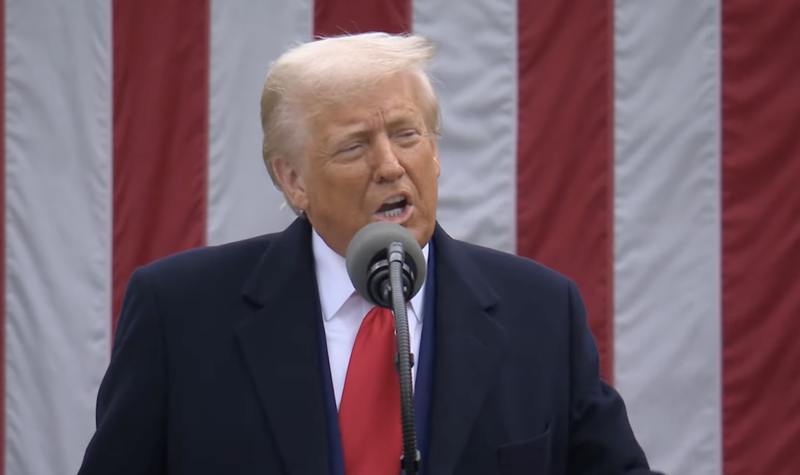President Donald Trump rolled out his controversial array of reciprocal tariffs on nations around the world, but a lesser reported element of his new trade policy is the removal of a tax exemption for Chinese packages sent from companies like Shein and Temu into the U.S.
The White House announced that effective May 2 of this year, the de minimis exemption will end.
“The de minimis loophole has allowed Chinese companies like Shein and Temu to flood our market with junk, opioids, and other illegal products, often created from stolen American intellectual property,” U.S. Sen. Tom Cotton, R-Ark., wrote on X Thursday.
U.S. Sen. Bill Cassidy, R-La., echoed that sentiment, saying American companies cannot compete with Chinese companies that face allegations of using slave labor to make cheaper products.
“Currently, ‘de minimis’ shipments account for 92% of all cargo entering the U.S. China takes advantage of de minimis to dump billions of cheap goods into our economy that are subsidized through China’s lack of labor and pollution standards,” Cassidy said.
“What’s worse is bad actors in China are also exploiting de minimis to smuggle deadly narcotics into our country,” he added.
The White House says the U.S. processes 4 million de minimis shipments every day and that they will now “be subject to all applicable duties, which shall be paid in accordance with applicable entry and payment procedures.”
Those previously untaxed packages are now “subject to a duty rate of either 30% of their value or $25 per item (increasing to $50 per item after June 1, 2025).
“This is in lieu of any other duties, including those imposed by prior Orders,” the White House added.
The allegations of slave labor use are not without evidence. As The Center Square previously reported, the U.S. Select Committee on the Chinese Communist Party published bipartisan research in June 2023 reporting that Chinese companies are taking advantage of the American tax system.
“These results are shocking: Temu is doing next to nothing to keep its supply chains free from slave labor,” Mike Gallagher, a former Wisconsin lawmaker who previously served as chair for the committee, said in the announcement of the report’s release. “At the same time, Temu and Shein are building empires around the de minimis loophole in our import rules – dodging import taxes and evading scrutiny on the millions of goods they sell to Americans.”
Stocks took a tumble Thursday morning after rising the day before. Economists disagree about the impact of the tariffs, both on how much they will increase costs on consumers and to what degree they will boost domestic production.
Trump and backers of the tariffs have said the tariffs are meant to level the playing field since the tariffs generally only apply to countries that already have similar tariffs on U.S. goods. Theoretically, some argue, the reciprocal tariffs could lead to fewer tariffs overall as both sides are incentivized to lower the tariff burdens on one another.
Critics have emphasized that Americans will pay higher prices as the tariff taxes are passed on to consumers.
“So-called Liberation Day will amount to financial suffocation of American families,” Joel Griffith, senior fellow at Advancing American Freedom, told The Center Square. “The annual impact of these tariffs will exceed $3,500 per year for families – easily erasing several years’ worth of income gains for millions of workers. Over the course of 30 years of free trade with Canada and Mexico – in particular – real annual family income rose more than $25,000. Our manufacturing output jumped more than 50% even as our economy further diversified, providing a record number of high paying jobs along with more affordable goods for families of all income levels.”
However, closing what some call the “de minimis loophole” was more well received than some of the tariff policies, but it is not without its critics.
“Just want to emphasize that de minimis is not a loophole and was legislated by Congress because collecting tariffs on low-value shipments creates an unnecessary administrative burden on CBP and raises costs on U.S. businesses and consumers,” Inu Manak, a trade policy fellow at the Council on Foreign Relations, wrote online.







